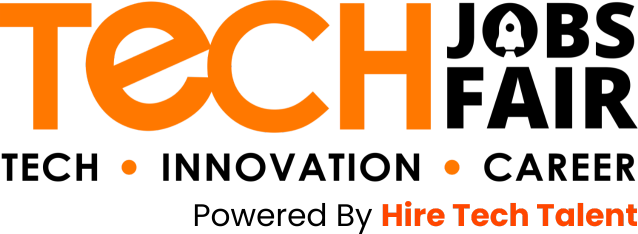- « Previous blog
-
December 4, 2023
-
2271
- Next blog »
Career transitions are critical in the fast-paced world of Information Technology (IT), where change is constant. Career transitions in IT entail significant changes in one’s professional path, ranging from changes in positions and sectors to learning new skills that correspond with the ever-changing IT world.
Navigating career transitions is more than a choice in the fast-paced IT industry. Professionals must proactively adjust to change due to the rapid growth of technology and industry trends. It is a systematic method to being relevant and adaptable, ensuring that one’s skills and experience correspond with current and future IT landscape demands. Individuals risk stagnating and may find it difficult to attain continuous professional progress and success if they do not effectively navigate these changes.
In essence, change in the IT sphere is a continual reality rather than a passing phase. To be successful in this environment, professionals must accept and navigate career transitions. This might include learning new technical skills, trying new positions, or even delving into developing IT sectors. Seeking career change advice, staying informed about industry trends, and being open to learning new skills are critical techniques for those looking to survive and flourish in their career transitions within the lively and ever-changing world of Information Technology.

Understanding the Current IT Landscape For Navigating Career Transitions
Key Trends in the IT Industry
- Cloud Computing
Shifting to cloud based solutions has been a significant development in today’s IT world. This has reshaped how companies operate by emphasizing flexibility, scalability, and efficiency. Professionals who navigate career transitions can explore upskilling in cloud technology to stay relevant.
- Artificial Intelligence and Machine Learning
AI and ML are transforming modern business operations. Learning and mastering these technologies can help not people working today but also for anyone considering a career in this field.
- Cybersecurity
Risk of cyber threats is increasing and hampering many businesses globally. If an individual is considering a career in this industry they should look into the high-demand profession of cybersecurity. Learning threat detection, ethical hacking, and security architecture positions workers as valuable assets in protecting digital ecosystems.
High-Demand IT Roles
- Data Scientist
With many businesses depending on data driven decision better performance, data science jobs are in high demand. Professionals who can analyze data can build their careers by mastering skills like– data science, machine learning, and data analytics. These skills add valuable input and can help businesses make informed decisions.
- Cloud Architect
The demand for qualified cloud architects is expanding as organizations increasingly utilise cloud technology. Mastering cloud platforms, building scalable solutions, and ensuring the smooth integration of cloud technologies inside an organization’s IT ecosystem are all part of becoming a cloud architect.
- Cybersecurity Analyst
Given the constantly shifting threat landscape, cybersecurity expertise are essential to safeguarding digital assets. By studying about vulnerability assessments, incident response, and security regulations, people who are considering a career change can become cybersecurity analysts. This role is essential for shielding enterprises against new online dangers.
Building a Strong Professional Network
Networking is integral to a successful career transition in IT. Making relationships helps get insights, access to possibilities, and stay current on industry trends.
Using social media to grow your professional network in the IT business is an excellent strategy.
- Hire Tech Talent
Hire Tech Talent is an excellent Reverse Recruitment platform for job searchers navigating the competitive world of the technology business. Hire Tech Talent accelerates the job search process by connecting qualified people with opportunities matching their talents and objectives.

- LinkedIn
Create an engaging LinkedIn profile that highlights your talents and goals. To create your presence in the IT world, network with experts, join relevant groups and engage in discussions.
- Twitter
On Twitter, follow IT influencers, corporations, and industry-specific hashtags. Engage in conversations, contribute helpful material, and utilise Twitter chats to connect with other professionals.
Tips for Successful Networking at Events:
- Craft a concise introduction that showcases your skills and career goals.
- Engage in conversations with curiosity, asking thoughtful questions and actively listening.
- After the event, share contact details and stay in touch with new connections.
Crafting a Compelling IT Resume
- Tailoring Your Resume for IT Roles
Understand the specific requirements of the IT roles you seek. Customize your resume by focusing on relevant skills, experiences, and certifications that align with the job requirement.
- Showcase Relevant Experience and Skills
Highlight your experience and abilities that are directly connected to the IT sector. Show technical skills, project management experience, and specialised training or certifications.
- Showcasing Achievements and Impact
Show how your effort has a tangible effect. Use measurable achievements to display how your efforts have improved projects, shown results, or enhanced team performance.
- Incorporating Keywords for Applicant Tracking Systems (ATS)
If you do your research and include relevant keywords, the applicant tracking system (ATS) will read your resume more easily. These tools ensure that someone sees your application by searching resumes for particular phrases.
Preparing for IT Interviews to Navigate Career Transitions
- Common IT Interview Questions
When making a career change into tech with no experience, expect questions about your transferable skills and motivation for entering the industry.HereTop 10 Common Interview Questions and How to Answer.
- Demonstrating Technical Competency
Discuss relevant self-taught projects or online courses to demonstrate your commitment to study. Highlight any technological talents obtained, even if they are not from a standard IT background.

- Showing Problem-Solving Ability
Highlight situations in your past employment where problem-solving was critical. Employers place a premium on flexibility and analytical thinking, which are essential in technology.
- Company and Industry Research
Before the interview, thoroughly research the company’s technology stack, initiatives, and industry trends. Show your enthusiasm and synergy with the company’s aims.
Conclusion
- Navigating career transitions into the thriving IT business necessitates a deliberate strategy and a dedication to continual learning. Whether you’re changing jobs with no experience or looking to grow in your IT work, the road requires you to embrace change and highlight your unique talents.
- Remember to answer typical questions, demonstrate technical expertise earned through unusual methods, display problem-solving abilities, and show a thorough awareness of the firm and sector as you prepare for IT interviews. Use online classes, self-taught projects, and industry events to improve your talents.
- Accept the challenge of a career transition into technology, knowing that the IT sector thrives on diversity and embraces people from all walks of life. Your capacity to adapt, learn, and align with the ever-changing digital world will put you on the right track.
- Finally, the IT business provides several prospects for development and innovation. Stay proactive, inquiring, and growing not just effectively to handle job changes but to flourish in the ever-changing world of technology.
Join 20,000+ Subscribers
Get exclusive access to new tips, articles, guides, updates, and more.


